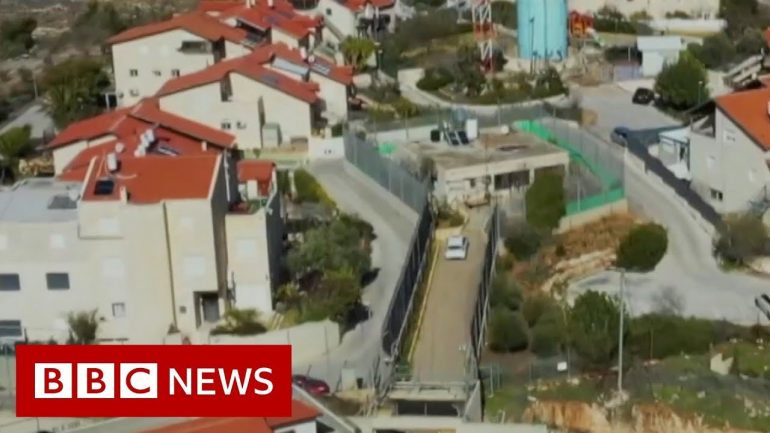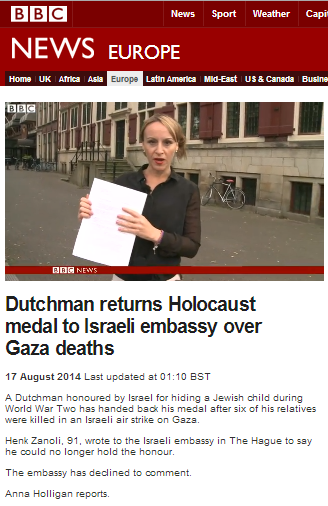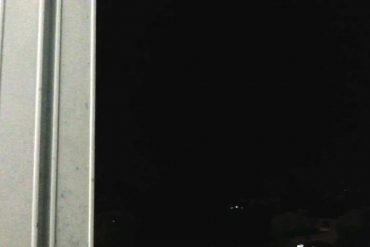On February 14th the BBC News website published a filmed report by the Jerusalem bureau’s Tom Bateman on its ‘Middle East’ page. Titled “Israel-Palestinian conflict: The family with its own checkpoint”, the report was apparently filmed a week earlier and its synopsis indicates that it falls under the category of BBC framing of the recent US ‘Peace to Prosperity’ proposal.
“How is President Trump’s plan to solve the Israeli Palestinian conflict being received on the ground?
The BBC’s Middle East correspondent Tom Bateman went to visit two homes in the occupied West Bank; starting with a Palestinian family whose house is in a fenced off enclave within an Israeli settlement.
Israel has said it intends to formally annex all settlements in the West Bank based on President Trump’s plan.
But the US proposals are rejected by the Palestinians, who say its vision of a state for them is unacceptable.
About 600,000 Jews live in about 140 settlements built since Israel’s occupation of the West Bank and East Jerusalem in 1967.
The settlements are considered illegal under international law, though Israel disputes this.”
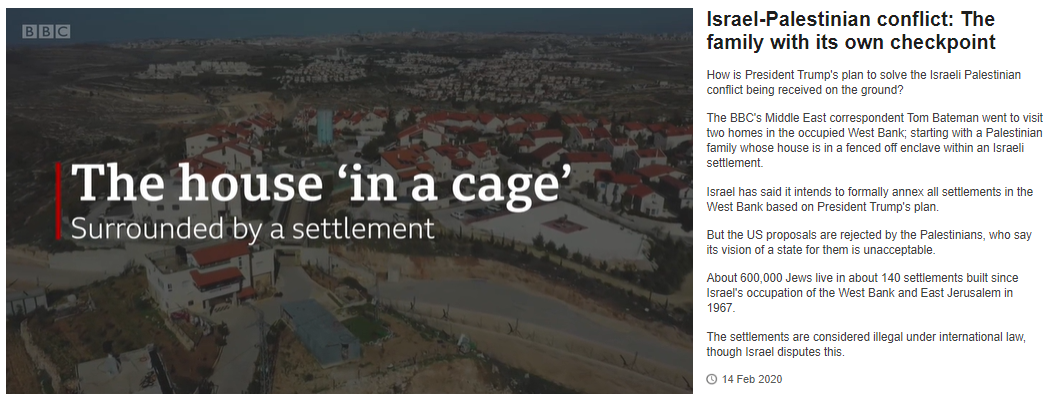
The same report was apparently aired on the BBC News television channel and readers will no doubt note the use of hyperbole in the title used in both versions: “The house ‘in a cage’ surrounded by a settlement”.
Similar rhetoric is used by Bateman himself – “like being in a prison, inside a cage” – and by his Palestinian interviewee – “not left me air to breathe”, “we are living in a prison”, “under siege”, “confiscated my land”.
Bateman tells BBC audiences that:
“Israel declared ownership of the land around the Gharib’s house. The settlement was built and the family home was later fenced off as part of the separation barrier Israel said it built for security.”
In addition to failing to note the second Intifada terror war as the context for the construction of the anti-terrorist fence, Bateman does not bother to clarify that the land on which the ‘settlement’ – Giv’on HaHadasha – was built had been purchased by Jews long before the State of Israel came into being, that it had been the site of a Jordanian army camp after the 1948 Jordanian invasion and subsequent 19-year occupation or that claims by the Gharib family that they owned additional land were shown to be unsupported in several court cases.
Later on in the report Bateman interviews a resident of Giv’on HaHadasha. Pointing at the fence he asks her:
“What do you think when you see a Palestinian home behind all this?”
Ilanit Gohar replies: “He chose this, he chose this type of living” but BBC audiences would be incapable of understanding her reply because Bateman did not bother to inform them that the Gharib family refused an offer of compensation for relocation prior to the construction of the anti-terrorist fence in that area in 2008 and that their claims were rejected by the Supreme Court.
The compromise reached in that court case was that the fence would be built around the Gharib house (which had been constructed, according to court documents, without building permits) and that the family would have a key to the gate shown in the film. Nevertheless, BBC audiences were told by Sa’adat Gharib that “we live in a prison where they [Israeli forces] can lock the gate [when they like]”.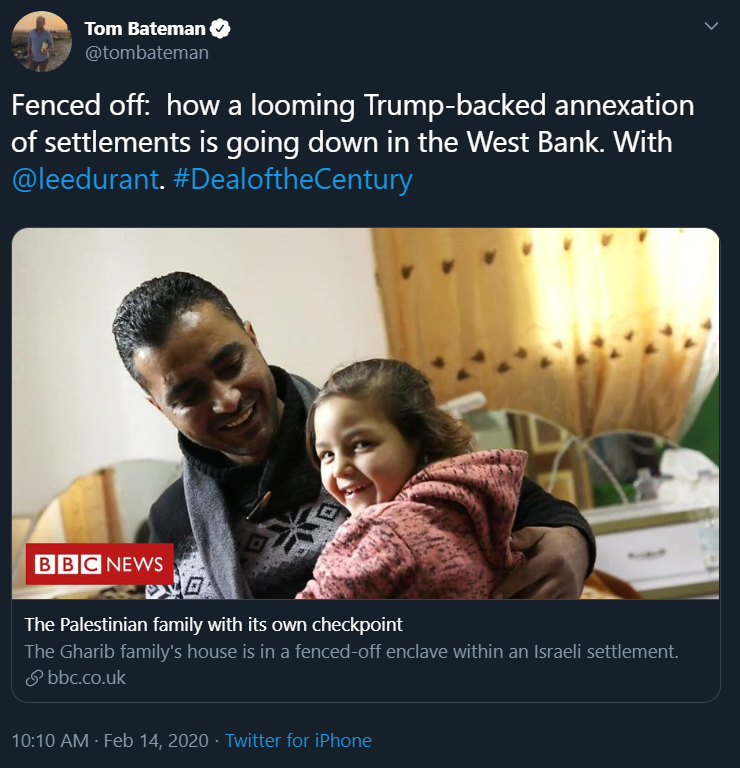
The aim of Bateman’s report is amply apparent in his closing remarks at 05:26:
Bateman: “What strikes me, you know, when you look at this [fence] with the settlement on the other side, most of the rest of the world has always said, building them by Israel is illegal. But what has changed in the Trump plan is he says OK, they become a formal part of the State of Israel. And as soon as you say that, you then say well these fences and walls that have been built by the Israelis, they become the new borders.”
The story that Bateman has chosen to highlight in this report is of course very much an exception. But by using that atypical example and failing to provide all the relevant background information, Bateman is able to further promote the BBC’s one-sided framing of the US Administration’s proposals to the corporation’s audiences.
Perusal of some of the comments under Bateman’s video shows just how far removed the report is from meeting the BBC’s obligation to provide “accurate and impartial” reporting which will “build people’s understanding”.

